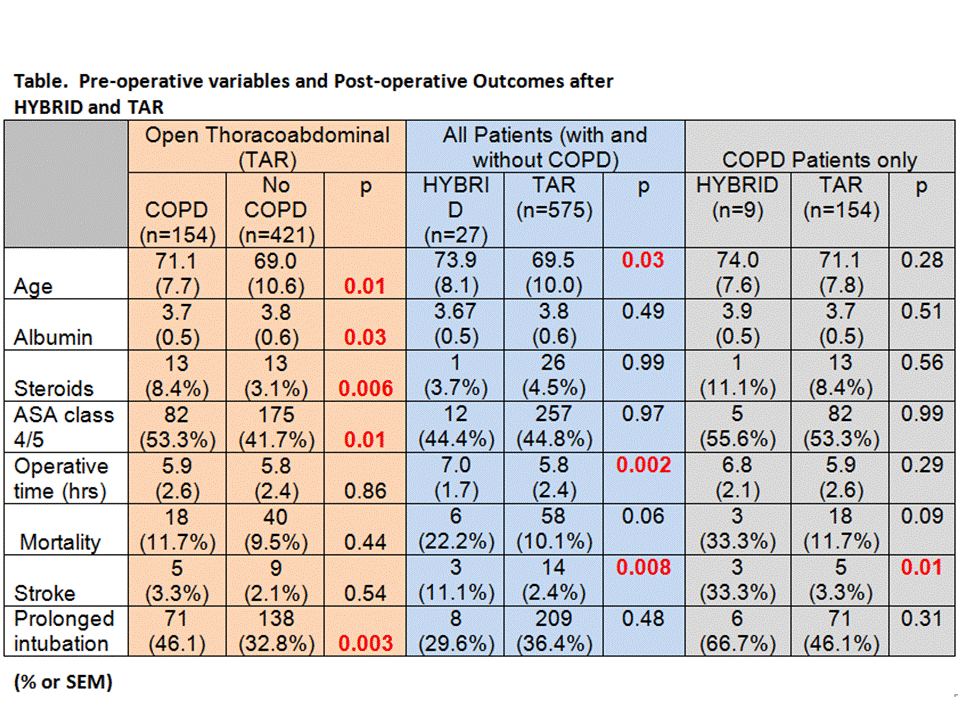Back to Annual Meeting Symposium
Thoraco-Abdominal Aneurysm Repair in Patients with COPD_Traditional Open Repair or HYBRID?
Bao-Ngoc Nguyen, MD, Richard F. Neville, MD, Rodeen Rahbar, MD, Richard Amdur, PhD, Anton N. Sidawy, MD, MPH.
George Washington University, Washington, DC, USA.
OBJECTIVES: Open thoraco-abdominal aneurysm repair (TAR) results in major post-operative pulmonary complications in COPD patients. This study investigates whether a hybrid procedure (HYBRID) is a good alternative for this patient population.
METHODS: All patients who underwent TAR (CPT code 33877) and HYBRID (visceral debranching and TEVAR) from 2005-2010 were identified from the NSQIP database. Outcomes for TAR were compared between patients with and without COPD. For COPD patients, 30-day outcomes were compared between OPEN and HYBRID approach.
RESULTS: 575 patients received TAR, 154 (27%) of which had COPD. Compared to patients without COPD, patients with COPD were older, more likely to be malnourished, use steroids and have ASA class 4/5. COPD resulted in a significantly higher risk of prolonged intubation (46% vs 33%, p = .003). When HYBRID (n=27) was compared to TAR (n=575) for all patients, it had significantly longer operative time (7.0±1.7 vs. 5.8±2.4 hrs, p=.0017), higher risk of stroke (11.1% vs. 2.4%, p=.008), and no significant difference in pulmonary complications (table). Furthermore, for COPD patients, multivariate analysis showed HYBRID was associated with significantly higher rates of DVT/Stroke (OR 13.6 vs. 0.9, p=.02) and prolonged intubation (OR 16.0 vs. 1.8, p=.003
CONCLUSIONS: COPD patients should not be automatically excluded from open thoraco-abdominal repair since the hybrid procedure may not represent a safer alternative.

Back to Annual Meeting Symposium

|


